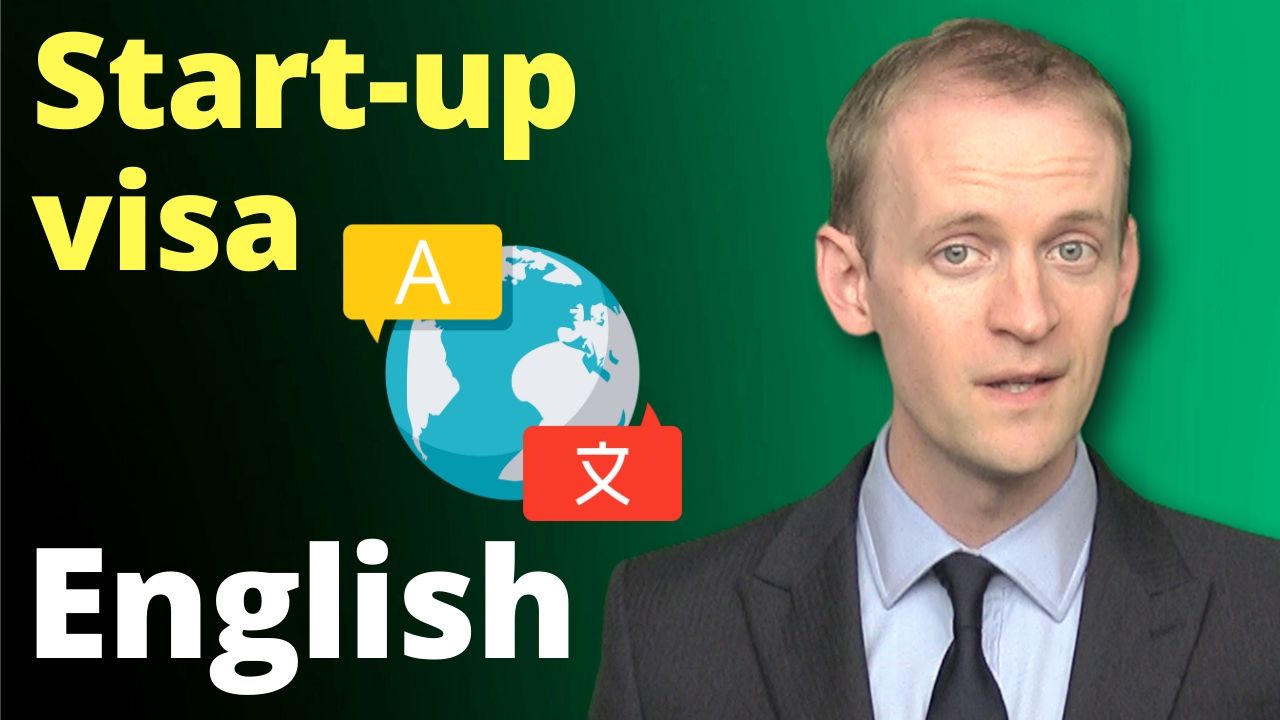INTRODUCTION
1. The test and process: maintenance
- You have B2 level English.
- Level B2 means that you are an “independent” user of the English language, i.e. you can fluently communicate without effort with native speakers. This is measured under the Common European Framework of Reference for Languages (CEFRL).
- There are six levels:
-
- A1 and A2 (basic users)
- B1 and B2 (independent users)
- C1 and C2 (proficient users)
- B2 level English is equivalent to :
-
- EF SET 51-60
- IELTS 5.5-6.0
- TOEIC Listening 400-485
- TOEIC Reading 385-450
- TOEFL 72-94
- What level of English is expected for the start up visa?
According to the official CEFR guidelines, someone at the B2 level in English should be able to:
- understand the main ideas of complex text on both concrete and abstract topics, including technical discussions on your field of specialisation (which would include your start up);
- interact with a degree of fluency and spontaneity that makes regular interaction with native speakers possible without strain for either party; and
- produce clear, detailed text on a wide range of subjects and explain a viewpoint on a topical issue giving the advantages and disadvantages of various options, e.g. in a start up visa context the pros and cons of the market for your product / service.
- You are also expected to be able to:
- participate in meetings in your area of expertise;
- talk about your personal or business finances;
- talk about your personal and professional lifestyle, including a description of your business or life at work;
- explain your education, experience, strengths and weaknesses, and discuss your start-up career path;
- use appropriate language in social situations, including praising and expressing sympathy;
- discuss leadership qualities and talk about leaders whom you admire;
- deal with relatively complex awkward situations that arise in social and business context.
- It is generally expected that, in order to reach the B2 level in English for a start-up visa, about 600 hours of instruction is needed in total for the average person.
2. How to fulfil the English language requirement for the start-up visa
You can fulfil the requirement in 4 ways, through your:
- nationality;
- degree;
- test; or
- earlier grant.
- 1. Nationality
This is the first way. This means you are a national of a specified majority English speaking country:
-
- USA
- Canada
- Australia
- New Zealand
- Jamaica
- Trinidad and Tobago
- Antigua and Barbuda
- The Bahamas
- Barbados
- Belize
- Dominica
- Grenada
- Guyana
- St Kitts and Nevis
- St Lucia
- St Vincent and the Grenadines
- 2. Degree
-
- The second way is to prove that you have a recognised degree, which was taught in English.
- This means that you:
-
- 1. have a UK degree (Bachelor’s, Masters or PHD) or
- 2. it is an academic degree (not professional or vocational) and UK NARIC (National Academic Recognition Information Centre) confirms it is recognised. UK NARIC is the UK national agency for the recognition and comparison of international qualifications and skills. For your degree to be recognised, it must either:
-
- (a) be awarded from a specified majority English-speaking country, or
- (b) meet or exceed the UK standard for Batchelor’s degrees.
- 3. Test
-
- The third way is that you pass or have passed a Secure English Language Test.
- Go to the list of approved English Language Test providers: https://www.gov.uk/government/publications/guidance-on-applying-for-uk-visa-approved-english-language-tests
-
- You need to:
- 1. achieve the required level in all 4 components:
-
- Reading
- Writing
- Speaking
- Listening
- 2. get a unique reference number for the test, which allows your score to be verified by the Home Office.
- 4. Previous grant
-
- The fourth way is that you have already met the requirement in a relevant previous successful application:
- You must have had a previous grant of entry clearance or leave to remain in any of these categories:
- Start-up
- Innovator
- Tier 1 (General)
- Tier 1 (Post-Study Work)
- Tier 1 (Entrepreneur) under the rules in place before 13 December 2012
- Tier 2 (Minister of Religion)
- Tier 4 (General), supported by a Confirmation of Acceptance for Studies (CAS) assigned on or after 21 April 2011
Check out these other useful resources by me on this topic

